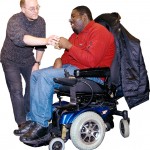
Sleep problems are commonly found in people with learning disabilities who live in residential settings, but the authors of this study were concerned that insufficient attention was being is paid to them in the literature and consequently in practice. They set out to improve the knowledge and understanding of sleep quality and sleep problems among [read the full story…]






